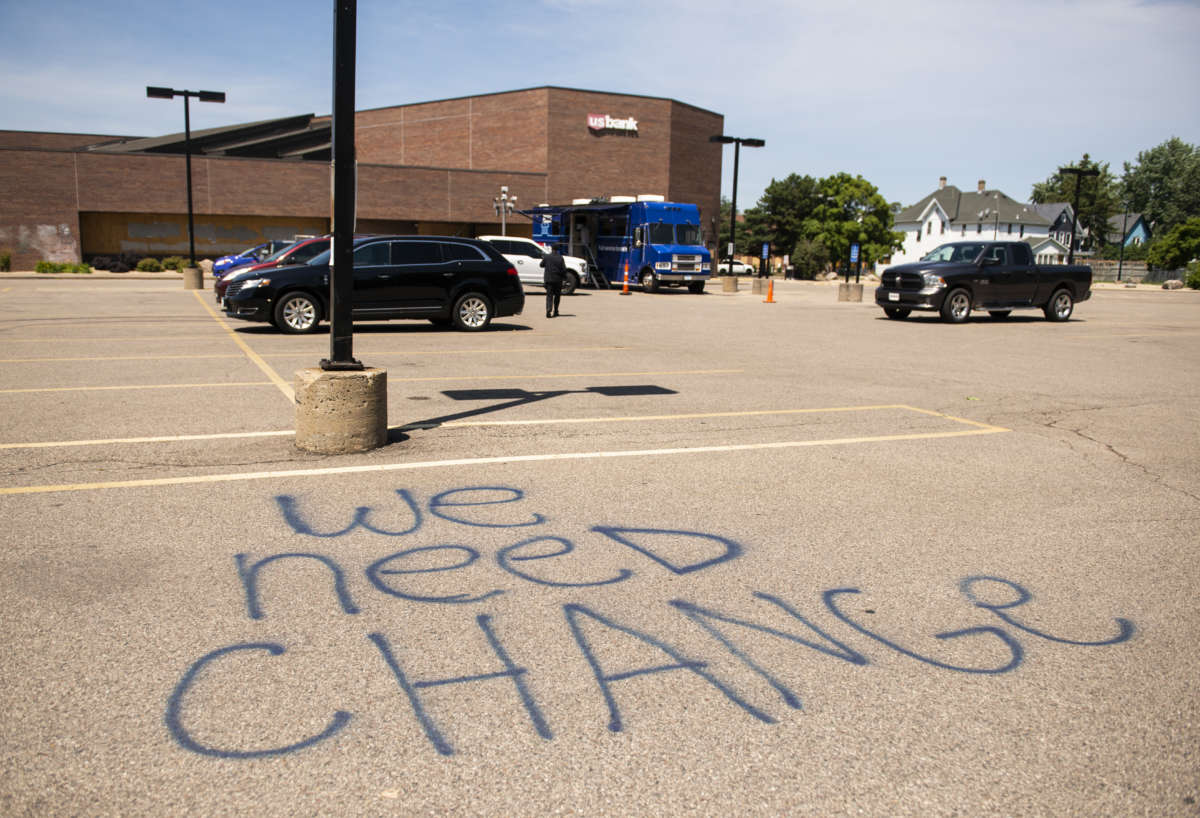
BYWilliam Rivers Pitt, Truthout
Despair and Disparity: The Uneven Burdens of COVID-19
Ispent the first 35 years of my working life in a big northeastern city. I was a weekend spendthrift like many a callow youth, but even that could never quite explain how I was always struggling to stay solvent from paycheck to paycheck, even in those spans when I made (relatively) good money.
The thing is, most everyone I knew was trapped on some version of the same hamster wheel. All of them worked their hands raw, all of them had enough money to pay for housing and food, but almost nobody I knew was able to assemble a savings account that held more than a few hundred bucks.
This is hardly rare; according to Motley Fool reporter Maurie Backman, “69 percent of Americans have less than $1,000 in savings…. Worse yet, 45 percent of Americans say they have $0 in savings. That’s right — not so much as a dollar socked away in a bank account.”
Economists in the journalism business ground a good deal of enamel off their teeth over this, because people with no savings inevitably go into debt after a financial emergency, and a nation buried in personal and government debt risks going into a death spiral of negative feedback that can, among other things, lead to Germany in 1939.
Now, suddenly, all of that is quite out the window.
“The pandemic has upended consumer habits, with fewer people eating out and traveling and others building a financial cushion,” reported Shirley Leung and Larry Edelman in an October 10 Boston Globe article. “Economists have long worried about Americans carrying too much debt, but ironically the sudden embrace of savings comes at a time when the economy needs consumers to spend more. A prolonged period of parsimony is hampering the recovery and threatening industries that had thrived on our free-spending ways.”
Yes, yes, it’s COVID’s fault. If only this pesky pandemic hadn’t come along and exposed the unsustainable mirage of eternal consumption and growth on a planet with finite and dwindling resources, everything would be just ducky. All of you who felt bad about yourselves for having no savings can buck up. You’re doing it right! For now.
And that’s the rub. Thanks to decades of insistent work led by Black scholars and activists and recently mainstreamed in new ways through The 1619 Project at The New York Times, a broader understanding has come into being of the umbilical connection between the chattel slavery which birthed this nation, and the economic system which sits astride it today. They are blood relatives, linked by the DNA of agony and plunder.The fact that having a savings account during a pandemic is suddenly “bad for the economy” proves once again that capitalism is nothing more than a meticulously constructed rationalization for greed.
Yet while the claws of base capitalism were honed in the cotton fields of the South and the cotton mills of the North, it was not first fashioned there. Capitalism, stripped to the raw nerve, is the sacking of Troy, the taking from the weak by the strong. It has been a ruthless presence since humans first fashioned weapons and organized into groups. The ideology was, and remains, simplicity itself: When you win, no matter how you win, you get to take.
Adam Smith gave it a name and some fluffy words to obscure the fathomless brutality of it all, but in the end, capitalism is plunder.
COVID-19 is like water, in that it flows into the low places and finds every crack, every seam, every pinhole to pour through. The pandemic has been busy exposing the cracks in our overall health care industry, specifically regarding our perilous employment-based health insurance racket, our education system, and on; COVID did not damage these things, so much as it washed off the paint and exposed all the deep red rust.
The fact that having a flush savings account during a pandemic is suddenly “bad for the economy” proves once again that there is no actual system at work here: Capitalism is nothing more than a meticulously constructed rationalization for greed on a planetary scale, and that rationalization will move to wherever the money is at any given moment.
There are no rules beyond “Go for the loot,” and if that makes savings accounts the new enemy, so be it. It is preposterous that they’ve gotten away with this shell game for so long, but they have, and we are all knee-deep in the ashes of aftermath, moving toward a grueling winter.
READING LIST:
Opponents of Trump’s Border Wall Are Getting Out the Vote in Texas
Trump’s Threats Are Proclamations of Fear — But That Doesn’t Mean He’s Harmless
Instead of Chasing “Swing Voters,” Ohio Organizers Push to Expand Electorate
Trump Suggests He May Fire Fauci After the Election



